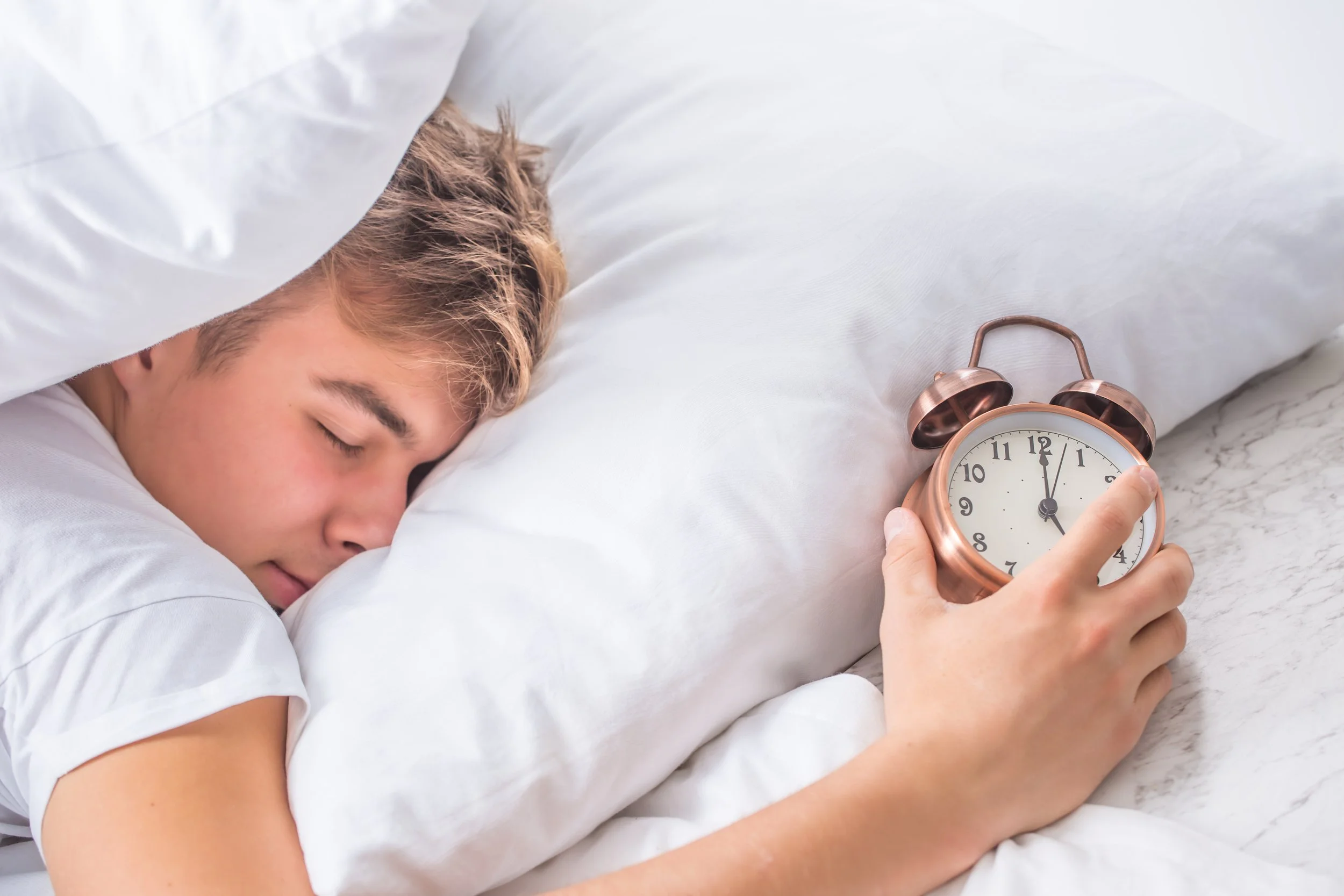3 Facts About Adolescent Sleep
It is common for parents to ask why their teen is always tired or why their teen can’t wake up in the morning. The most common reason is simply that teens are not getting enough sleep!
Adolescents have a biological need of 8-10 hours of sleep, but in the U.S., about 75% of adolescents are significantly sleep deprived, getting less than 7 hours of sleep per night on school nights.
Before we jump to simply blaming technology, here are 3 facts about adolescent sleep to help you better understand the significant sleep debt among adolescents.
#1 - Puberty impacts when an adolescent is biologically ready to fall asleep
When adolescents go through puberty, hormones change.
Melatonin is the hormone that prepares our body for sleep when it gets dark out.
During puberty, the timing of when the body releases melatonin is delayed by ~1-2 hours for most teens. So physiologically teens are not ready to go to sleep at an early bedtime.
But on the flip side…
#2 - Early school start times significantly contribute to difficulties waking and daytime sleepiness
When teens can’t fall asleep early, but have to wake early for school, it is simply not possible to get enough sleep.
When teens don’t have the chance to get enough sleep, they can struggle to wake up in the morning or feel sleepy during the day.
#3 - Technology may steal sleep for some teens, but may help other teens sleep better
Technology can be a sleep stealer. While the light emitted from devices may impact sleep, the highly engaging nature of social media and video games is more problematic. Even if a teen turns their device off at bedtime, it can take time for the brain to power down, making it hard to fall asleep.
On the other hand, recent research suggests that some teens use technology to relax at bedtime - listening to music or distracting their busy mind with sleep inducing podcasts, meditations, or audiobooks.
So before you quickly blame technology as the root of all sleep problems, you may need to consider a harm reduction approach for technology use in your patients.
Want to learn more about pediatric sleep for your clinical practice? Nyxeos offers provider consultation, live webinars, and an on demand course. Or set up a free consultation to see how we can provide services that meet your needs.


